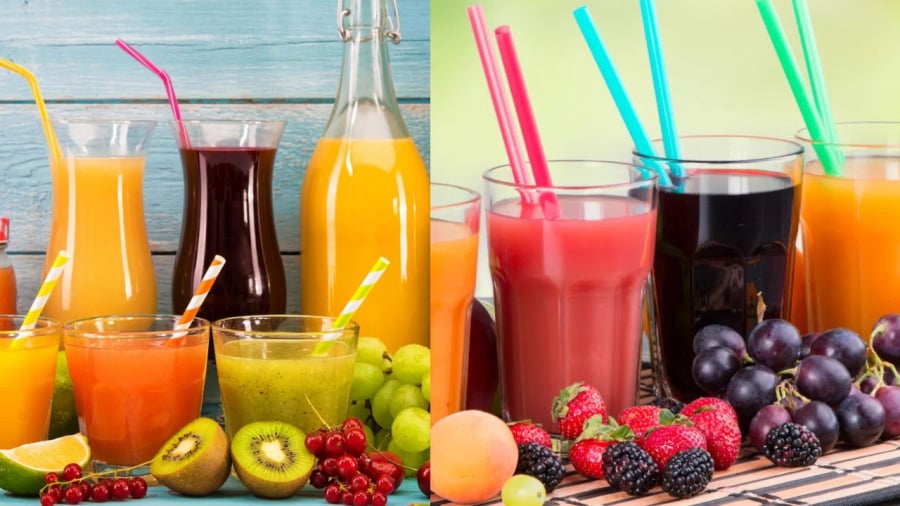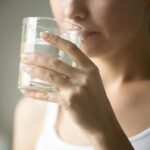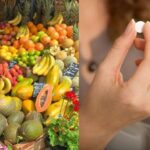As summer arrives, it’s tempting to reach for fruit juices, smoothies, or natural soft drinks to cool down. However, according to the latest warning from the UK Health Security Agency (UKHSA), these seemingly healthy beverages are not suitable for hydration or heat relief during intense heatwaves.
Fruit Juices: Not the Ideal Choice for Heat Relief
According to Express and Daily Mail, UKHSA has issued a notable advisory as the UK faced a severe heatwave. Specifically, the agency recommends avoiding orange juice, apple juice, and other fruit juices when dehydrated due to hot weather.

The reason lies in their high sugar content, whether it’s natural fruit sugar or added sweeteners. This can lead to more severe dehydration instead of hydration.
Understanding the Mechanism: Why Do Sweet Drinks Cause Dehydration?
Many assume that any liquid will hydrate the body. However, the truth is quite the opposite when it comes to sugary fruit juices, bottled soft drinks, or sports drinks.
The high sugar content in these beverages rapidly increases blood and gut sugar levels. In response, the body attempts to balance these levels by pulling water from surrounding cells and tissues into the gut and bloodstream to dilute the concentration. This results in cellular dehydration, known as intracellular dehydration.
Moreover, the kidneys have to work overtime to expel the excess sugar, leading to further water loss through urination. This explains why you may still feel thirsty shortly after consuming fruit juices or smoothies.
Not Just Juices – Caffeine and Alcohol Should Also Be Avoided
In addition to sugary drinks, beverages containing caffeine, such as coffee, tea, and energy drinks, are also on the list of drinks to be cautious about during hot weather. Caffeine acts as a strong diuretic, stimulating the kidneys to excrete more sodium and water, leading to dehydration.
While alcohol may provide an instant “cooling” sensation, it exacerbates dehydration. Alcohol inhibits the anti-diuretic hormone (ADH), reducing the kidney’s ability to retain water. Additionally, alcohol causes vasodilation and increased sweating, leading to rapid whole-body dehydration.
All these beverages have a diuretic effect, causing the body to expel too much water in a short period, resulting in severe dehydration and fatigue.
So, What Should You Drink to Cool Down Effectively?
In its latest guidance, UKHSA recommends the following:
- Plain water remains the optimal choice for hydration and heat relief in hot weather. Take small, frequent sips throughout the day, rather than waiting until you feel extremely thirsty.
- Low-fat milk can also be used as a safe source of hydration.
- If you wish to consume fruit juices, opt for unsweetened, bland varieties such as bitter gourd juice or natural vegetable juices, and dilute them with water.
- Limit the consumption of sugary, carbonated drinks, beverages containing caffeine, or alcohol during hot weather.
Summer is a time when the body is more prone to dehydration, so choosing the right beverages for heat relief is crucial. Don’t be fooled by the seemingly healthy nature of fruit juices or smoothies. Instead, prioritize water, unsweetened vegetable juices, and steer clear of drinks high in sugar, caffeine, or alcohol.
Proper hydration not only reduces fatigue and provides effective cooling but also safeguards your overall health during sweltering summers.
“4 Fruits You Thought Were Healthy but Are Silently Damaging Your Liver: Are You Unknowingly Consuming These Daily?”
“Fruits are often hailed as nature’s ‘superfood’, offering a plethora of health benefits, from detoxification and immune-boosting properties to promoting radiant skin. However, what many may not realize is that certain fruits, when consumed incorrectly, can silently damage the liver, and in some cases, even more so than alcohol.”
7 Health Issues That May Arise If You Don’t Drink Enough Water
Dehydration is a common issue in today’s fast-paced world. According to research by the National Academy of Medicine in the United States, adults require approximately 2.7 to 3.7 liters of water daily, including fluids and water content from food. However, the demands of modern life often cause people to neglect their hydration needs.





































